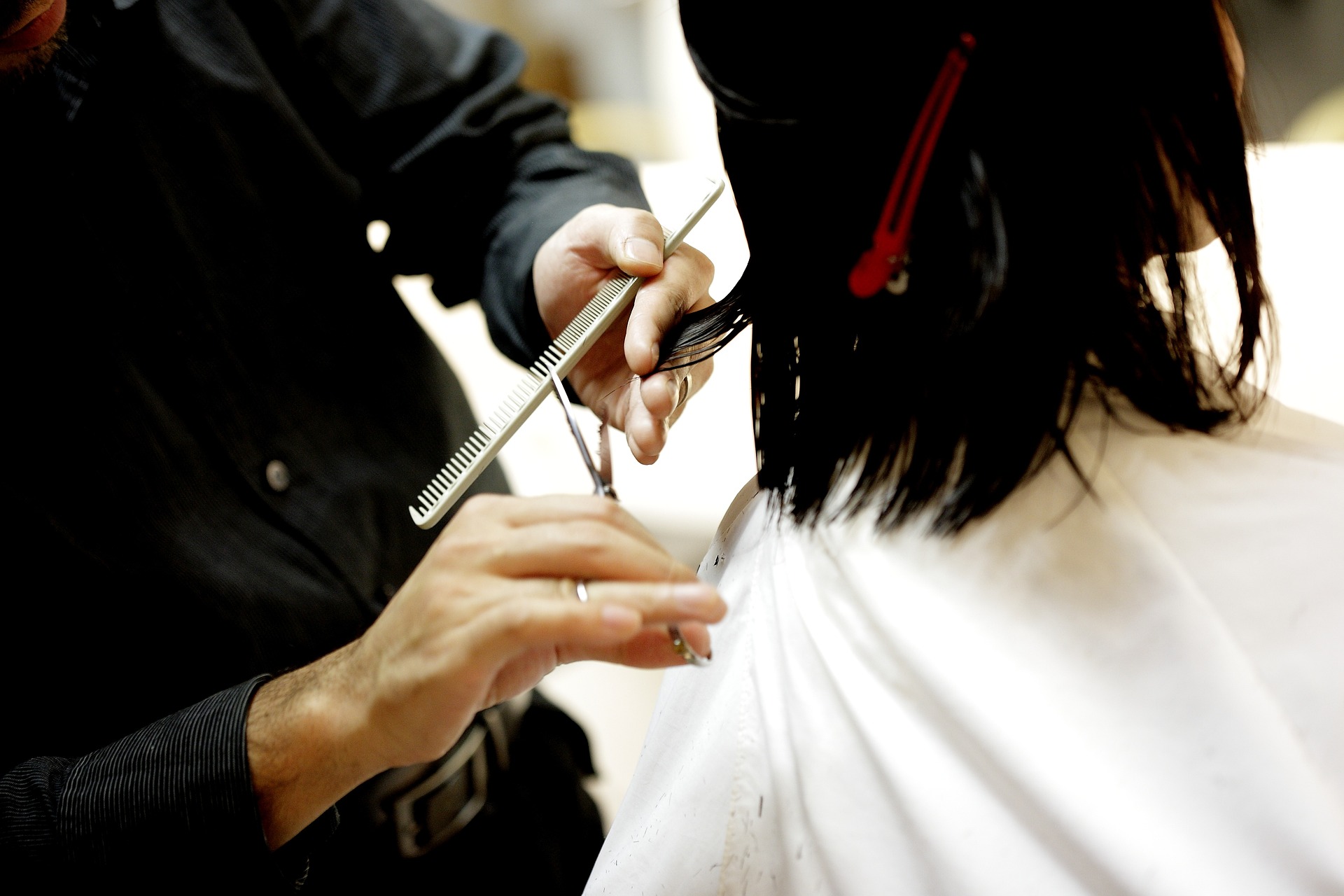Your haircare FAQs answered
February 21, 2023
FAQs, Hair Guide, Haircare, Ultimate Guide

In this article, we tackle the many questions that arise in the realm of hair care, a crucial part of personal grooming. From determining the best hair care products to uncovering the most effective hair care routines, we answer some of the most frequently asked questions about hair care.
Q1. What are the best products for hair care?
A: The best products for hair care depend on your hair type and specific needs. However, there are some common ingredients that are effective for most hair types, such as keratin, argan oil, and biotin. A good shampoo and conditioner are essential hair care products, and it’s important to choose a product that suits your hair type, such as oily, dry, or normal. A deep conditioning treatment can also be helpful in restoring the health of your hair.
Q2. How often should I wash my hair?
The frequency of washing your hair depends on several factors, including your hair type, scalp condition, and personal preferences. Generally, it’s recommended to wash your hair every 2-3 days for normal hair, and once a week for dry hair. Oily hair may need to be washed daily. It’s important to listen to your hair and adjust the washing frequency as needed. Overwashing can strip hair of its natural oils, leading to dryness and damage.
Here are some guidelines to help determine the right washing frequency for your hair:
- Normal hair: This type of hair is not too oily or too dry and has a healthy balance of natural oils. Washing every 2-3 days is typically sufficient.
- Oily hair: If your hair is naturally oily, you may need to wash it daily to keep it from looking greasy.
- Dry hair: This type of hair has a tendency to be brittle and lacks natural oils. Washing it once a week or every 10-14 days is recommended to prevent further dryness.
- Curly or textured hair: Curly or textured hair often has a drier texture and benefits from less frequent washing to prevent frizz and preserve natural oils. Washing every 3-4 days is usually sufficient.
Remember, everyone’s hair is different, and what works for one person may not work for another. The best way to determine the right washing frequency for your hair is to pay attention to how it looks and feels and adjust accordingly.
Q3. What is the best way to style my hair?
A: The best way to style your hair is based on your hair type, length, and personal preference. A blow dryer, flat iron, or curling iron can be used to style your hair. It’s important to use heat-protectant products before using heat styling tools, to prevent damage to your hair. If you prefer not to use heat styling tools, there are many heat-free styling options available, such as braids, buns, or twists.
Q4. How can I prevent hair damage?
A: There are several ways to prevent hair damage, including:
- Using heat-protectant products before using heat-styling tools.
- Avoiding excessive use of chemical treatments, such as dyes, relaxers, and perms.
- Regularly using a deep conditioning treatment to maintain the health of your hair.
- Avoiding tight hairstyles that put pressure on your hair and scalp.
- Brushing your hair gently, starting from the ends and working your way up.
Q5. How can I promote hair growth?
Maintaining a balanced diet that is rich in vitamins and minerals, such as vitamins B and D, iron, and zinc, is crucial for promoting hair growth. These nutrients are essential for strong and healthy hair and can be found in a variety of foods, including leafy greens, nuts, and lean proteins. To further enhance hair growth, it is important to limit exposure to harsh chemicals and heat styling tools that can damage your hair and lead to breakage. Regular trims are also an important aspect of promoting hair growth, as they help to remove split ends and allow for the stimulation of new hair growth. By combining a healthy diet with smart hair care habits, you can ensure that your hair is strong, healthy, and growing to its fullest potential.
Q6. How can I treat dandruff?
A: Dandruff is a common issue that can be effectively treated with over-the-counter dandruff shampoos. These shampoos contain active ingredients such as pyrithione zinc, salicylic acid, or tar, that work to combat dandruff-causing yeast and promote a healthy scalp. When choosing a dandruff shampoo, it is important to select one that is suitable for your hair type and to follow the instructions on the label carefully. In addition to using dandruff shampoo, maintaining a healthy diet, keeping your scalp clean, and ensuring that it is well-moisturized are all important factors in treating dandruff effectively. A diet rich in vitamins and minerals, such as vitamins B and D, iron, and zinc, can help to promote healthy hair and a healthy scalp. Regular gentle cleansing, along with regular moisturizing, can help to keep your scalp healthy, hydrated, and free from dandruff. By combining a healthy diet with proper hair care practices, you can effectively treat dandruff and promote a healthy scalp.
Q7. How can I treat hair loss?
A: Hair loss can be treated in a number of ways, including:
- Taking supplements that contain vitamins and minerals that are essential for hair growth, such as biotin, iron, and vitamins B and D.
- Using minoxidil, a medication that is applied directly to the scalp and is effective for promoting hair growth in both men and women.
- Undergoing hair restoration surgery, such as a hair transplant, to restore hair growth.
- Using low-level laser therapy, which uses light energy to stimulate hair growth.
- Maintaining a healthy diet, rich in vitamins and minerals, and avoiding harsh chemicals and heat styling tools that can damage your hair.
It’s important to consult with a healthcare provider or a hair loss specialist to determine the best course of treatment for your individual needs.
Q8: Can I condition my hair too much?
A: Yes, it is possible to condition your hair too much. Over-conditioning your hair can lead to a build-up of product, which can weigh down your hair and leave it looking greasy. Additionally, over-conditioning can also cause your hair to become too soft, which can lead to split ends and breakage.
To prevent over-conditioning, it’s important to use conditioner only on the ends of your hair and to avoid the roots, unless your hair is very dry. It’s also important to choose a conditioner that is suitable for your hair type, and to follow the instructions on the label. If you have fine or thin hair, it’s best to use a lighter, leave-in conditioner, rather than a heavy, deep-conditioning treatment.
Q9: How many weeks can you go between haircuts?
A: The frequency at which you should get a haircut depends on several factors, including your hair type, hair length, and hair care routine. For people with short hair, it is typically recommended to get a haircut every 4 to 6 weeks to maintain the hair’s shape and style. For those with medium to long hair, the recommended frequency is 6 to 8 weeks.
However, if you are growing your hair out, or if your hair is particularly healthy and not prone to split ends, you may be able to go longer between haircuts, up to 10-12 weeks. Ultimately, the best way to determine how often you should get a haircut is to consult with your hairstylist, who can assess the condition of your hair and recommend a schedule that is best for you.
Q10: Are dry shampoos sufficient to keep hair fresh between washes?
Dry shampoos can be a useful tool for keeping hair fresh between washes. They work by absorbing excess oil and impurities from the scalp and hair, leaving them looking and feeling clean.
However, it’s important to note that dry shampoos are not a substitute for regular washing with water and shampoo. They only mask the oils and impurities, and they can build up over time if used excessively. Overuse of dry shampoo can also lead to a dry and itchy scalp, and can even contribute to hair loss if the product is not removed properly.
Additionally, not all dry shampoos are created equal, and some may contain ingredients that can be harmful to the hair and scalp. Before using a dry shampoo, it’s important to choose one that is suitable for your hair type and to follow the instructions on the label.
In conclusion, hair care is a crucial aspect of personal grooming and there are many questions that arise in this regard. This blog post aimed to answer some of the most frequently asked questions about hair care, such as the best products to use, the most effective hair care routines, and ways to prevent hair damage and promote hair growth. The best hair care routine and products will vary based on an individual’s hair type, length, and specific needs. Maintaining a healthy diet, avoiding harsh chemicals and heat styling tools, and consulting a healthcare provider can also play a role in promoting healthy hair. Overall, proper hair care is important for maintaining the health and appearance of your hair.
Interested in learning more? Check out our article on Balayage Hair Refresh as well as the benefits of regular hair trims!

